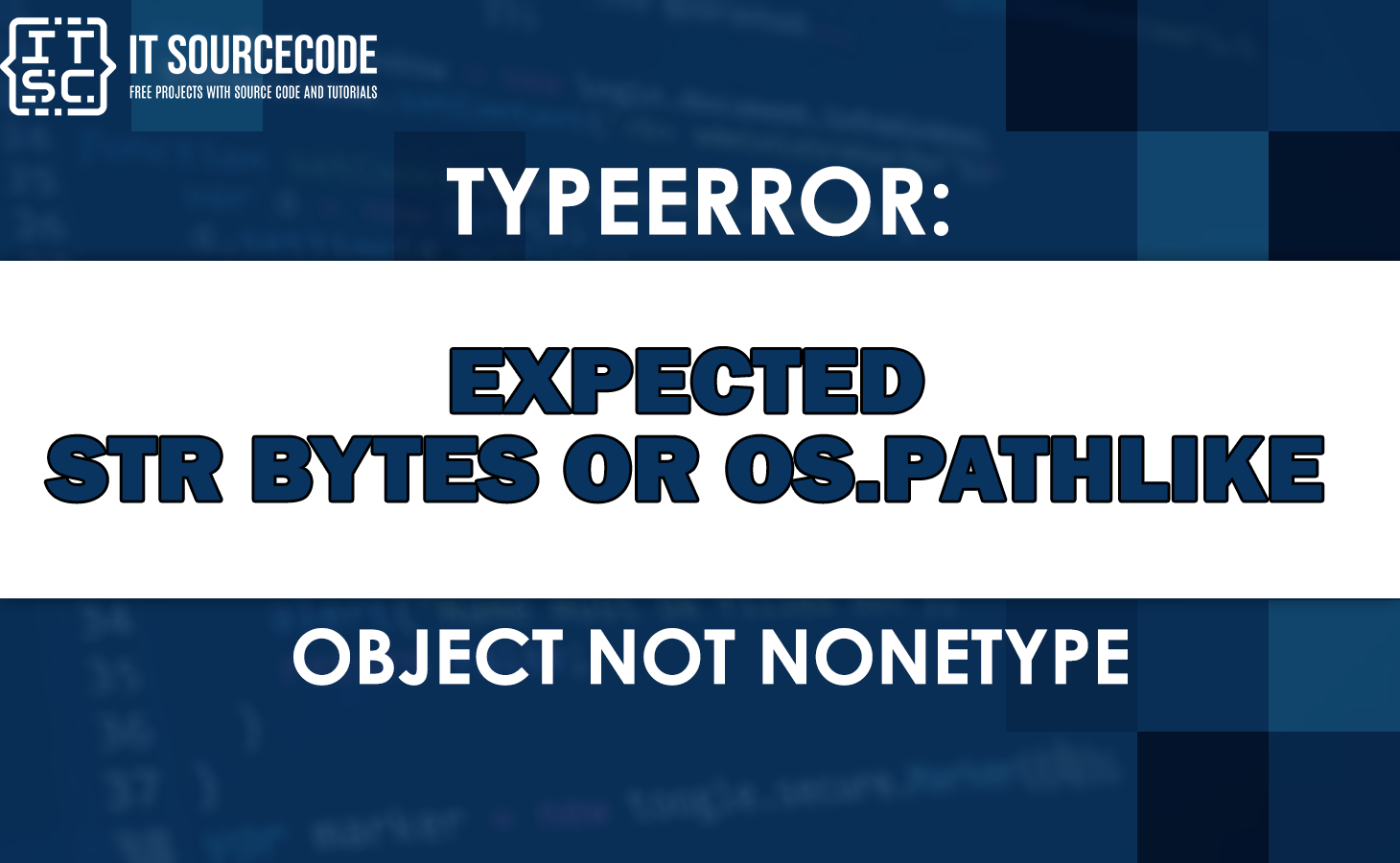Have you ever encountered an error, like “TypeError: expected str, bytes or os.PathLike object, not NoneType”?
If so, don’t worry, you’re not alone.
This expected str, bytes or os.PathLike object, not NoneType typically occurs when we try to open a file but provide a None value for the filename.
Along with this guide, we will explore the causes of this error and provide you with practical solutions to help you fix it.
So, let’s dive in and learn how to handle this error like a pro!
What is Typeerror expected str bytes or os.pathlike object not nonetype?
The “TypeError: expected str, bytes or os.PathLike object, not NoneType” is an error that happens when we attempt to open a file but put a None value for the filename.
To fix the error, figure out where the None value comes from and correct the assignment.
Here is how the error occurs:
filename = None
# TypeError: expected str, bytes or os.PathLike object, not NoneType
with open(filename, 'r', encoding='utf-8') as f:
lines = f.readlines()
print(lines)If we run this code it will raise an error.
Traceback (most recent call last):
File "C:\Users\Windows\PycharmProjects\pythonProject1\main.py", line 4, in <module>
with open(filename, 'r', encoding='utf-8') as f:
TypeError: expected str, bytes or os.PathLike object, not NoneTypeCauses of expected str bytes or os.pathlike object not nonetype
The most common cause of None values are:
- Functions return None implicitly.
- Having a variable set to None.
- A function that only returns a value when a certain value is met.
- Assigning a variable to the result which calls a built-in function that doesn’t return anything.
Solved Typeerror expected str bytes or os.pathlike object not nonetype
The following are solutions to the causes we mention that throw the expected str bytes or os.pathlike object not nonetype.
Functions do not return anything return None.
Functions that don’t obviously return a value return None.
For example:
# this function returns None
def get_filename():
print('example.txt')
# TypeError: expected str, bytes or os.PathLike object, not NoneType
with open(get_filename(), 'r', encoding='utf-8') as f:
lines = f.readlines()
print(lines)
If we run this code it will raise an error…
TypeError: expected str, bytes or os.PathLike object, not NoneType.
Alternatively, use a return statement to throw a value from a function.
def get_filename():
return 'data.txt'
with open(get_filename(), 'r', encoding='utf-8') as f:
lines = f.readlines()
print(lines)Check if the variable doesn’t store a None value
Meanwhile, if you need to check if the variable does not store None value prior to opening the file, use the If statement.
For example:
filename = None
if filename is not None:
with open(filename, 'r', encoding='utf-8') as f:
lines = f.readlines()
print(lines)
else:
print('filename stores a None value')Alternatively, the variable can be able to set to a default value which is None. Just see to it you’re not storing the result on one variable.
Note: There are a lot of built-in functions wherein can change into their original object.
Check if the variable is initialized properly
Another way to fix the error is checking if the variable is initialized properly.
filename = None
with open(filename, 'r') as f:
lines = f.readlines()
print(lines)
This code will raise the expected str, bytes, or os.PathLike object, not NoneType error because the filename variable is set to None.
To fix this, you can make sure that the filename variable is initialized with a valid path:
filename = 'data.txt'
with open(filename, 'r') as f:
lines = f.readlines()
print(lines)
Output:
['Welcome to Itsourcecode!']
Anyhow, if you are finding solutions to some errors you might encounter we also have TypeError can’t concat str to bytes.
Conclusion
To conclude, the “TypeError: expected str, bytes or os.PathLike object, not NoneType” is an error that happens when we try to open a file but provide a None value for the filename.
To fix the error, figure out where the None value comes from and correct the assignment.
By trying the outlined solutions above, you can possibly fix the error.
Thank you for reading!

